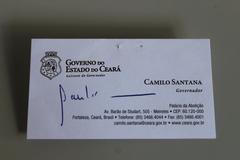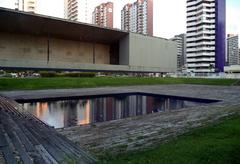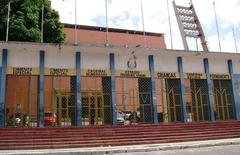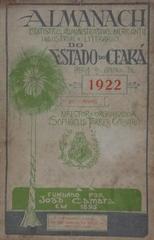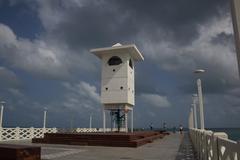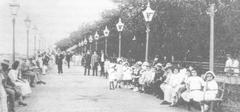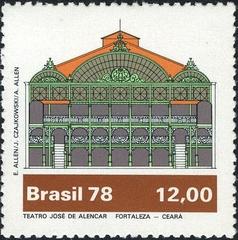
Sobrado do Doutor José Lourenço: Visitor Guide, Hours, and Cultural Significance
Date: 04/07/2025
Introduction
Sobrado do Doutor José Lourenço is an emblematic landmark in the heart of Fortaleza, Ceará, Brazil. Recognized as one of the city’s earliest three-story neoclassical buildings, it stands as a testament to nearly two centuries of urban development, architectural innovation, and cultural transformation. Today, this historic sobrado is a vibrant center for visual arts, education, and community engagement, drawing both locals and travelers eager to explore Fortaleza’s rich heritage.
This detailed guide covers everything you need to plan your visit: opening hours, accessibility, location, programming highlights, and practical tips. Whether you’re a history buff, art lover, or cultural explorer, the Sobrado invites you to discover the stories and creativity that shape contemporary Fortaleza.
(ipatrimonio.org, secult.ce.gov.br, ceara.gov.br, diariodonordeste.verdesmares.com.br)
Table of Contents
- Historical Overview and Architectural Features
- Evolution of the Sobrado: Uses Across the Decades
- Visitor Information: Hours, Tickets, and Accessibility
- What to Expect: Experience and Programming
- Nearby Attractions
- Cultural and Social Impact
- FAQs
- Conclusion and Visitor Tips
- References
Historical Overview and Architectural Features
Origins and Construction
Commissioned by Dr. José Lourenço de Castro Silva—a pioneering ophthalmologist and public education advocate—the Sobrado was constructed between 1845 and 1874. It marks a pivotal moment in Fortaleza’s urban growth, as one of the first three-story buildings in the state, designed in the neoclassical style.
Architectural Distinction
- Façade: Notable for its symmetry, triangular pediment, arched upper windows, and decorative tile friezes.
- Structural Layout: Comprises three floors, a prism-shaped roof, and features such as wooden staircases and wrought-iron balconies.
- Original Materials: Built with local brick, lime mortar, and timber, complemented by imported ironwork and tiles reflecting European influences.
- Interior: Preserves high ceilings, thick masonry walls, and period woodwork, offering a glimpse into 19th-century domestic and professional life.
(ipatrimonio.org, diariodonordeste.verdesmares.com.br)
Evolution of the Sobrado: Uses Across the Decades
19th to Early 20th Century
- Private Home and Medical Office: Initially, the building served as Dr. José Lourenço’s residence and clinic, a typical arrangement for elite professionals of the era.
- Municipal and Judicial Functions: After his death, the Sobrado hosted the Tribunal de Relação de Fortaleza and City Hall offices, reflecting its importance in civic life.
20th Century Transformations
- Commercial and Social Uses: The building’s varied roles included a carpentry workshop and a bordello, mirroring shifting urban dynamics and social changes in downtown Fortaleza.
- Heritage Recognition: In 2004, it was officially listed as a protected heritage site by the Secretaria da Cultura do Estado do Ceará.
Restoration and Cultural Rebirth
- Restoration: Comprehensive works in 2006 restored original architectural features and adapted the building for contemporary cultural use.
- Cultural Center: Reopened in 2007, the Sobrado became a center for visual arts, community workshops, and educational programs, aligning with modern heritage conservation principles.
(secult.ce.gov.br, ceara.gov.br)
Visitor Information: Hours, Tickets, and Accessibility
Location
- Address: Rua Major Facundo, 154, Centro, Fortaleza, CE, 60025-100 (fortaleza-ce.brasil-infos.com)
- Map: mapacultural.secult.ce.gov.br
Opening Hours
- Tuesday to Friday: 9:00 AM – 5:00 PM
- Saturday: 9:00 AM – 2:00 PM
- Closed: Sundays and Mondays
Admission
- Tickets: Free for all visitors; no advance booking required for general entry.
- Group Bookings: Recommended for schools or large groups—contact via email or phone.
Accessibility
- Mobility: Ramps and adapted restrooms accommodate visitors with reduced mobility; staff are trained to assist.
- Guided Tours: Available in Portuguese; multilingual support can be arranged in advance.
- Contact:
- Phone: (85) 3101-8826 / (85) 9 9986-5086 (WhatsApp)
- Email: [email protected] / [email protected]
- Instagram: @sobrado154
What to Expect: Experience and Programming
Architectural Ambience
Step inside to experience the building’s restored neoclassical elegance: ornate ironwork, original wooden staircases, and airy, light-filled rooms. The preservation work ensures an immersive historical setting for every visitor.
Art Exhibitions and Cultural Programs
The Sobrado is renowned for its dynamic art programming:
- Rotating Exhibitions: Contemporary and historical works by artists from Ceará and beyond.
- Community Projects: The “Percursos” itinerant project brings exhibitions and workshops to diverse neighborhoods and municipalities.
- Workshops and Courses: Painting, printmaking, photography, and cultural heritage topics.
- Lectures and Residencies: Engage with artists, historians, and cultural managers through talks and creative residencies.
Special Events
- Art Fairs: Featuring local crafts and creative products.
- Collaborations: Joint programming with institutions like Mercado AlimentaCE and Cinema do Dragão.
- Seasonal Festivals: Thematic events celebrating regional and national culture.
Stay up to date with event schedules via Instagram @sobrado154.
Visitor Facilities
- Restrooms: Available on-site.
- Reception: Multilingual staff and visitor information.
- Accessibility: Ramps and adapted restrooms.
- Nearby Amenities: Cafés and restaurants within walking distance.
Photography
- Allowed: Most areas, except where temporary restrictions apply.
- Tips: Natural morning light enhances both façade and interior photos.
Nearby Attractions
Enhance your visit by exploring these nearby Fortaleza cultural sites:
- Theatro José de Alencar: Historic theater with guided tours.
- Museu do Ceará: Regional history museum.
- Dragão do Mar Center of Art and Culture: Contemporary art and entertainment complex.
- Fortaleza Cathedral and Central Market: Architectural and shopping highlights.
Cultural and Social Impact
Community Engagement and Inclusion
As part of the Rede Pública de Equipamentos Culturais do Ceará (Rece), the Sobrado champions:
- Free Access: All exhibitions and programs are free to the public.
- Social Inclusion: Outreach to marginalized and underrepresented groups, including women and Afro-Brazilian communities.
- Educational Initiatives: Guided tours, memory preservation workshops, and local history research.
- Dialogue and Debate: Forums on gender equality, racial justice, and contemporary social issues.
Urban Revitalization
The Sobrado’s adaptive reuse has invigorated downtown Fortaleza, serving as a model for heritage preservation and urban renewal. Community programming extends into public spaces, fostering citywide cultural participation.
Visitor Impact
In 2024, over 8,700 people participated in 38 activities across 16 neighborhoods, with outreach extending to six municipalities. The Sobrado’s impact continues to grow through partnerships, itinerant projects, and a commitment to cultural democratization.
(ceara.gov.br, mapacultural.secult.ce.gov.br)
FAQs
Q: What are the Sobrado’s visiting hours?
A: Tuesday to Friday, 9:00 AM–5:00 PM; Saturday, 9:00 AM–2:00 PM; closed Sundays and Mondays.
Q: Is there an admission fee?
A: No, entry is free for all visitors.
Q: Are guided tours available?
A: Yes, for groups and institutions by prior arrangement; contact staff for details.
Q: Is the building accessible?
A: Yes, ramps and adapted restrooms are available.
Q: Can I take photographs inside?
A: Yes, except where indicated during specific exhibitions.
Q: Is parking available?
A: Limited street parking is available; public transport and rideshare are recommended.
Conclusion and Visitor Tips
Sobrado do Doutor José Lourenço is a living testament to Fortaleza’s architectural and cultural legacy. Its free admission, accessible facilities, and innovative programming make it a must-see for visitors seeking to immerse themselves in the city’s creative spirit. To make the most of your visit:
- Arrive early to explore exhibitions and join guided tours.
- Check event schedules via Instagram @sobrado154.
- Pair your visit with neighboring cultural sites for a full downtown experience.
- Download the Audiala app for self-guided tours and audio content across Ceará’s heritage sites.
Embrace this opportunity to connect with Fortaleza’s past, present, and future through one of its most cherished cultural centers.
References
- ipatrimonio.org
- secult.ce.gov.br
- ceara.gov.br
- diariodonordeste.verdesmares.com.br
- mapacultural.secult.ce.gov.br
- fortaleza-ce.brasil-infos.com

